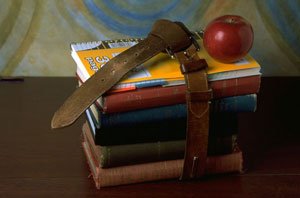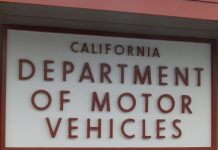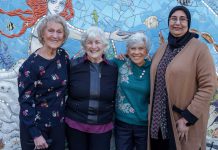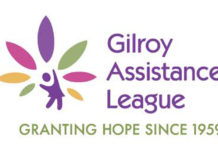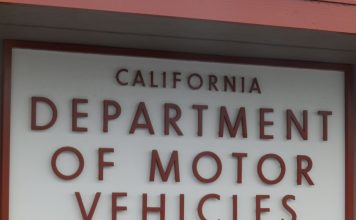Since a landmark provision passed two months ago mandating the
inclusion of gay history in K-12 social science curricula, ensuing
reactions sparked hot debates, a dichotomy in world views and a
nationwide petition garnering hundreds of signatures in Gilroy.
Full story
Council: More information needed on Visitors Bureau retail
plans
Gilroy remembers Sept. 11, 2001
Habitat plan revisions aren’t silencing critics
SJ mosquitoes test positive for West Nile Virus
Today’s breaking news:
Since a landmark provision passed two months ago mandating the inclusion of gay history in K-12 social science curricula, ensuing reactions sparked hot debates, a dichotomy in world views and a nationwide petition garnering hundreds of signatures in Gilroy.
“I’ve talked to lot of different people in the community,” said Matt Valencia, Senior Pastor of Calvary Chapel. “It’s something people are talking about and aware of on both sides.”
Gov. Jerry Brown signed Senate Bill 48, the “Fair, Accurate Inclusive and Respectful Education Act,” on July 14, making California the first state to mandate social science curricula include historically significant contributions made by lesbian, gay, bisexual, transgender Americans. The statute, which provides no opt-outs for objecting parents, amends an already existing law that ensures “inclusive education” for underrepresented groups in school instructional material for grades kindergarten through 12th.
At the local level, voices for and against the ruling are divided on the necessity of identifying a historical figure’s sexual orientation; what SB 48 will do for intolerance; and the range of a school’s role.
“Schools need to stick to reading, writing and arithmetic,” said Mark Turner, executive pastor of South Valley Community Church. “Let the church and parents be involved in these other issues.”
At least three local congregations – South Valley Community Church, New Hope Community Church and Calvary Chapel – are engaged in, or aware of, the “Stop SB 48” campaign. The national coalition of groups and individuals aiming to overturn the legislation must collect 750,000 signatures of registered voters by Sept. 30 to get a referendum on the June 2012 ballot.
Paulo Sibaja, a proponent of SB 48, doesn’t have a current tally but said at last count, 300,000 petitions are circulating the state. Each petition has 10 spaces for signatures.
“We’ve been filling orders left and right,” he said over the phone Friday.
On Monday, New Hope’s signature count was near 300, according to Administrative Assistant Tori Kopplemaa. Here, petition clipboards and informational documents have been laid out on tables near the entryway to the sanctuary. The same has been done at South Valley, where Turner mentioned to his congregation several months ago SB 48 is “a bill to keep our eyes on.”
At Calvary Chapel, Pastor Valencia explained the particulars of Stop SB 48 to his congregation, encouraging members to pray about and engage in dialogue on the issue.
What it comes down to, Turner said, “is the fact this type of legislation really should be decided upon by the people of California – not a select few in the State Assembly.”
Assemblyman Luis Alejo and State Senator Elaine Al quist voted in favor of SB 48.
Calls placed to seven board members and the superintendent of the Gilroy Unified School District were not returned as of press time. Public discussion of SB 48 has not been agendized in past board meetings, either.
Principals from Gilroy and Christopher High Schools, along with the Dr. T.J. Owens Early College Academy (GECA), however, are on board with the concept.
“We’re not here to judge students on sexuality or religious beliefs. If their heart is in the right place, we embrace them and support them,” said CHS principal John Perales.
He added, “If my church asks me to sign a petition, I’ll switch churches.”
A number of teachers from GHS, CHS and GECA agree: If it’s historically significant to American history, it has a place in the classroom.
“That argument that homosexuality is a new trend – to include them in history is to debunk that notion that it’s a late-20th century fad,” said GECA social sciences teacher James Corcoran.
CHS history teacher Darren Yafai points out members of the LGBT community are underrepresented in American history. As an educator, “I do my part to make sure we acknowledge and teach their accomplishments,” he said. “It’s silly to protest giving people due recognition.”
At this particular crossroad in the debate, a distinct fissure in viewpoints is clear.
Pastors such as Turner, along with Malcolm MacPhail, city chaplain and the executive pastor of New Hope, argue that recognition of sexual orientation is redundant when honoring achievement.
“Being straight or gay has nothing to do with the contributions that an individual makes to society,” Turner said.
No one should be denied historical recognition based on sexual orientation, said MacPhail, but SB 48 elevates a person’s sexual identity over the actual societal contribution.
Expanding upon his initial point, Turner delineates: Teachers don’t say things such as, “George Washington: The straight general. Thomas Jefferson: A gay man,” he said.
“Or going back to Franklin Roosevelt,” Turner added. “Although there was mention of the fact he had polio, we focus on him as a historical figure – not the fact he had polio, but served as a war-time president.”
Corcoran acknowledged this, but also pointed out society frequently pairs minority achievement with identity, i.e. – Barack Obama as “the first African-American president.” Female candidates vying to become commander in chief are revered as the possible “first female president,” he said.
“That’s what history books record,” said Corcoran. “We have an obsession over the ‘first,’ or ‘landmark’ achievement of groups that have been historically marginalized.”
Turner queried the educational value of trying to determine what historical figures may or may not have been gay, although Corcoran speculates angles such as, “Was President Buchanan gay?” likely won’t be on the agenda.
This speaks largely to the ambiguity circulating SB 48 since it passed. New textbooks and teaching materials haven’t been created, leaving educators and parents in the dark when it comes to gauging what the changes will look like.
Corcoran predicts an emphasis on the 1960s Civil Rights time period, including events such as the Stonewall Riots and recognition of figures such as former Mayor of San Francisco George Moscone, an early proponent of gay rights.
As for where the new material will be introduced, Corcoran guesses 11th-grade social science and U.S. history classes. Sophomore world history is also a possibility, he said.
In addition to flinching at what updated curriculums will cost schools, implementation is a gray area linking SB 48’s opposition and supporters. MacPhail is uneasy with elementary students being “taught a whole new lifestyle at a very young, impressionable age.”
While SB 48 applies to kindergarten through 12th-grade education, the office of State Sen. Mark Leno (D-San Francisco) – who introduced the bill – said school districts would ultimately work with the California Department of Education to determine what is age-appropriate for each grade level. Because of California’s budget crisis, however, changes to curricula may not go into effect until the 2015-16 school year, according to CDC Information Officer Pam Slater.
When the government attempts education reforms, Corcoran adds, there often isn’t adequate training for teachers beforehand to aid them in preparing for the changes.
“I have a high suspicion a vast majority of social science teachers off the bat are not prepared to adequately teach the subject matter,” he said.
When it comes to incorporation, “there does need to be various training materials available.”
Senate Bill 48
Existing law requires instruction in social sciences to include a study of the role and contributions of both men and women to the development of California and the United States. This bill requires instruction in social sciences to also include a study of the role and contributions of Native Americans, African Americans, Mexican Americans, Asian Americans, Pacific Islanders, European Americans, lesbian, gay, bisexual, and transgender Americans, and other ethnic and cultural groups, to the development of California and the United States.


